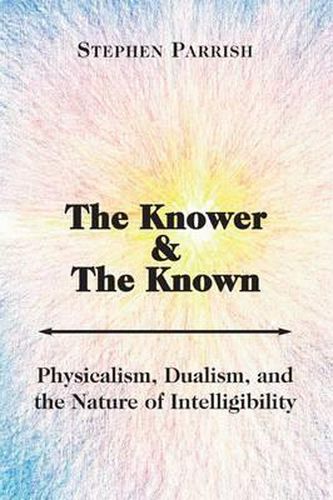Readings Newsletter
Become a Readings Member to make your shopping experience even easier.
Sign in or sign up for free!
You’re not far away from qualifying for FREE standard shipping within Australia
You’ve qualified for FREE standard shipping within Australia
The cart is loading…






The Knower and the Known deals with some of the most controversial subjects in philosophy today: the relation of the mind and the body, the fundamental nature of the physical world, the existence of abstract entities, and the nature of knowledge and its relationship to human consciousness. In doing so, it draws on insights from both contemporary analytic philosophy of mind and phenomenology.
The book argues that the fact that reality is understandable and is explicable by the proposition that consciousness is ontologically more fundamental than the physical. It argues at length that no physicalist theory of the mind can succeed. Although body and consciousness are intimately woven together, for knowledge to be possible, consciousness must be founded on immaterial selves. Abstracta such as universals are real, but are best understood not as independent entities but as ideal objects in the mind of God.
The Knower and the Known argues at length that no physicalist theory of the mind can succeed. Parrish challenges the sometimes quite surprising theories of the physicalists with rigorous logic, concluding his masterpiece with the only explanation left to us. In the end, what makes most sense, what is most logical, is classical theism - The Knower, who knows it all - because, after all, He made it.
The Knower and the Known concludes by bringing the different parts of reality together. External reality is understandable because it is the product of the God’s mind, and human beings can grasp that intelligibility, both in physical reality and abstractly, because our minds are finite analogs of the divine mind.
$9.00 standard shipping within Australia
FREE standard shipping within Australia for orders over $100.00
Express & International shipping calculated at checkout
The Knower and the Known deals with some of the most controversial subjects in philosophy today: the relation of the mind and the body, the fundamental nature of the physical world, the existence of abstract entities, and the nature of knowledge and its relationship to human consciousness. In doing so, it draws on insights from both contemporary analytic philosophy of mind and phenomenology.
The book argues that the fact that reality is understandable and is explicable by the proposition that consciousness is ontologically more fundamental than the physical. It argues at length that no physicalist theory of the mind can succeed. Although body and consciousness are intimately woven together, for knowledge to be possible, consciousness must be founded on immaterial selves. Abstracta such as universals are real, but are best understood not as independent entities but as ideal objects in the mind of God.
The Knower and the Known argues at length that no physicalist theory of the mind can succeed. Parrish challenges the sometimes quite surprising theories of the physicalists with rigorous logic, concluding his masterpiece with the only explanation left to us. In the end, what makes most sense, what is most logical, is classical theism - The Knower, who knows it all - because, after all, He made it.
The Knower and the Known concludes by bringing the different parts of reality together. External reality is understandable because it is the product of the God’s mind, and human beings can grasp that intelligibility, both in physical reality and abstractly, because our minds are finite analogs of the divine mind.